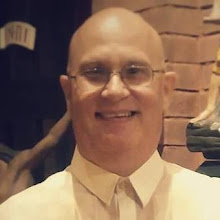The most awaited Lyric Opera of Kansas City production in years brought John Adams' once bound for neglect but now classic "Nixon in China" to the new stage at the Kauffman Theatre this week. Importing a production (and most if not all the production staff) from Vancouver (Vancouver Opera's Geral Director James Wright started his opera career at the Lyric) the technology rich production was frankly a musical and visual thrill from first note to last; 3 hours flew by. I regret not taking advantage of seeing it a second time.
Adams' music pulsed, swung, rocked and gently rolled under the masterful hand of Lyric Opera Music Director Ward Holmquist, who had a hand as vocal coach and assistant conductor in the world premiere in 1987. Alice Goodman's libretto is a masterpiece of symbolism and oblique references combined with just as many in-your-face moments. The sets were a show unto themselves, with projections of "The Spirit of 76" banking over a cloudy Peking and swooping over the stage to land on the runway. As Pat Nixon visited a pig farm, a health center, a school and park, videos were projected onto the placard signs the entourage was carrying. A visual of the Forbidden City reflecting the White House as Mao and Nixon was the talk of intermission, some thought it was showing the Communists were superior and the White House was upside down and inferior. Sigh....
James Maddalena, who created this role in the world premiere and has done it at least a hundred times, is perfect as Nixon, a visionary yet deeply flawed leader. Maria Kanyova who has performed Pat Nixon in Canadian Opera productions, was in fine voice and so perfectly projected the overwhelmed Pat as she struggled to figure out this strange land. Richard Paul Fink was a great Kissinger, a somewhat thankless role since he is portrayed as somewhat of a farce and a buffoon, symbolizing all that is evil on the capitalist side.
Absolutely beyond reproach was Audrey Luna as Chiang Ch'ing aka Madame Mao. She was the epitome of steely evil, bringing the house down with her vocally incredible coloratura aria "I am the wife of Mao Tse-Tung." The whole second act, with the surreal ballet "Red Detachment of Women" morphing into a metaphor of the Cultural Revolution, was superbly staged and danced. Luna, and the rest of the principals were also fine in the generally quiet, reflective 3rd act, punctuated by the screamingly surreal dancing of the Maos and Nixons (the music Adams later used for his popular concert piece "The Chairman Dances"). "Let's show these mother fuckers how to dance!" screams Madame Mao as she gyrates and fox trots with Mao as young revolutionaries.
My utter frustration was with many who saw these performances and totally missed the whole idea. A grumpy neighbor of mine who is an opera buff literally spit invective at it, saying an opera that uses microphones for the orchestra and singers is not opera but Broadway at its worst. Some one else I know cautioned all who considered going that they were going to lose time they could never regain by watching this trashy crap. She also whined that the vaunted acoustics of the Kauffman Theatre were a joke.." I could not hear a thing".. BS. I hear that a lot from people, who expect more than what any concert hall can provide. They seem to think they should be able to hear the stage hand's change jingle in his pocket from the farthest seat in the balcony over a full orchestra and cast. Adams' score is thick, the orchestra and voices amplified to gain a modern, steely, television effect and Goodman's libretto often poetic and metaphorical. NO ONE could understand every word. I, with a bum ear, heard it all quite clear thank you.
Nixon in China works when you let the music and the visuals wash over you and realize that the whole historical event was played out by some brave but inherently commonplace and flawed figures; an ambitious President focused on his image, an aging almost senile revolutionary leader, a cruel, power hungry woman taking advantage of her position, despised by all, a naive First Lady, along for the ride and a pragmatic Zhou En-lai who is tired as well, and fearing for his country's future.
It deserves its place as a modern classic.
Monday, March 19, 2012
Subscribe to:
Post Comments (Atom)



No comments:
Post a Comment